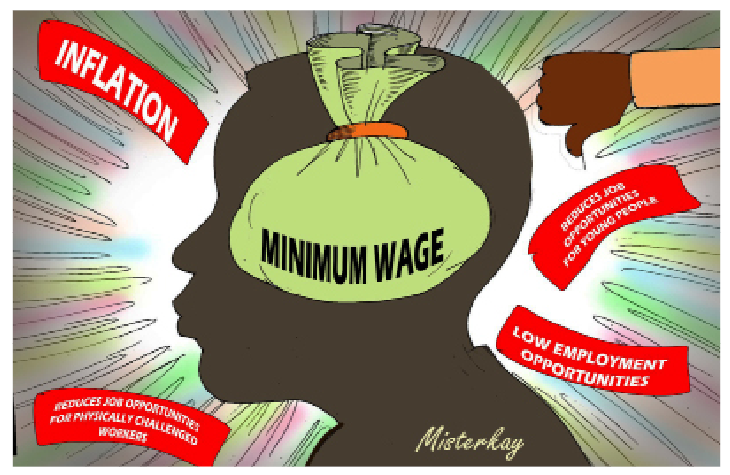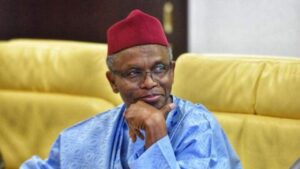The Director-General of the Nigerian Employers’ Consultative Association (NECA), Adewale Oyerinde, has warned that forcing private sectors to pay a new minimum wage could lead to job losses and increased insecurity.
Oyerinde who stated this on Wednesday during a forum with the Labour Writers Association of Nigeria (LAWAN) in Lagos said: “When private sectors that cannot afford to pay the new minimum wage are forced to pay, they will practically reduce staff strength, and when they do, it will create further problems for the economy because the rate of insecurity will increase.”
The NECA DG explained that the decision on the minimum wage was a painful one, but necessary for the country to move forward. He emphasised that the private sector is negotiating a minimum wage that all employers can afford to pay.
He said: “The figure rests with the president, and he can only approve what the economy can pay, which is correct. The private sector should approve what they can pay. If the economy starts improving, then we can start adding to it.”
The DG commended the federal government for the CNG gas initiative and suggested ways to reduce transportation and food costs, such as creating a structure for civil servants to buy bus cards, the elderly buying at a discount and transporting food through railway stations.
The DG emphasised that the minimum wage saga is not just about the figure, but what the figure can buy, and that the economy’s improvement will strengthen the naira and increase purchasing power.
The Nigerian government and the Organised labour signed an agreement regarding the minimum wage controversy, which states that the Tripartite Committee is to meet every day for one week to arrive at an agreeable National Minimum Wage, which should be higher than N60,000.
The Federal Government initially proposed N48,000 as the new national minimum wage, which was rejected by the labour unions.
Labour unions have demanded a minimum wage of N250,000, while the Organised Private Sector (OPS) proposed N54,000.
The Nigeria Labour Congress (NLC) and the Trade Union Congress (TUC) embarked on an indefinite nationwide strike to protest against the government’s inability to meet their minimum wage demand. The strike was later suspended for one week to give room for further negotiations.
Recently, chairman of the Tripartite Committee on National Minimum Wage, Bukar Goni Aji, asked Labour to reconsider the amount it demanded as minimum wage, citing the prevailing economic situation in the country.
He listed such incentives as the N35,000 wage award for all treasury-paid federal workers, N100 billion for procurement of gas-fuelled buses and conversion to gas kits, the N125 billion conditional grant, financial inclusion to small and medium scale enterprises and the N25,000 each to be shared to 15 million households for three months as reasons Labour should accept the N62,000 offered by the government, against its demand of N250,000
But Labour in a swift reaction, accused the Tripartite Committee chairman of lacking knowledge of the hardship and suffering workers and other Nigerians were going through.










More Stories
Zelensky says he is ‘ready’ to resign as Ukraine president
In mass firings, Elon Musk’s DOGE demands U.S. federal employees detail work done in previous week or turn in resignations
Kidnappers abduct 60-year-old patient from Kano Neuro-Psychiatric hospital